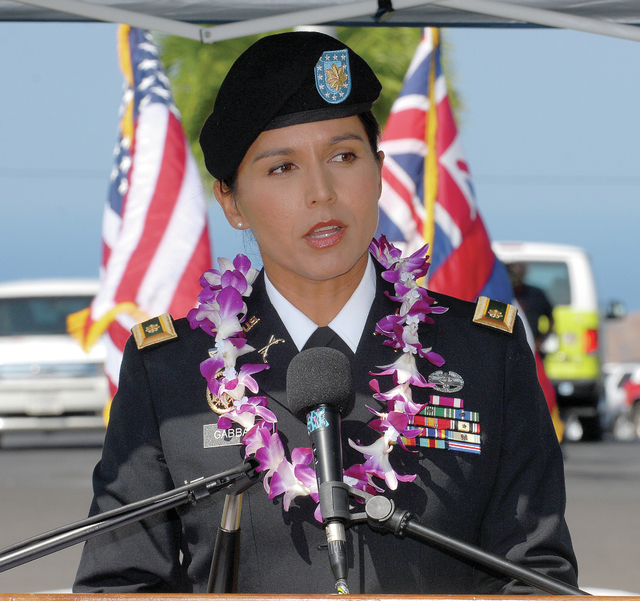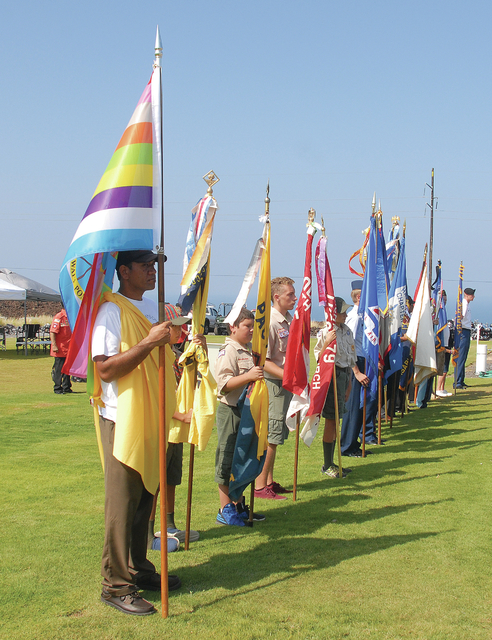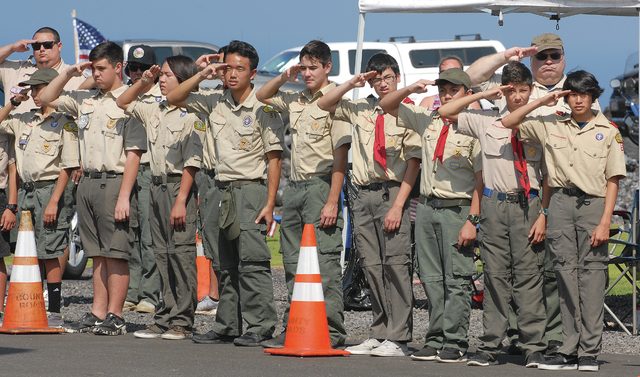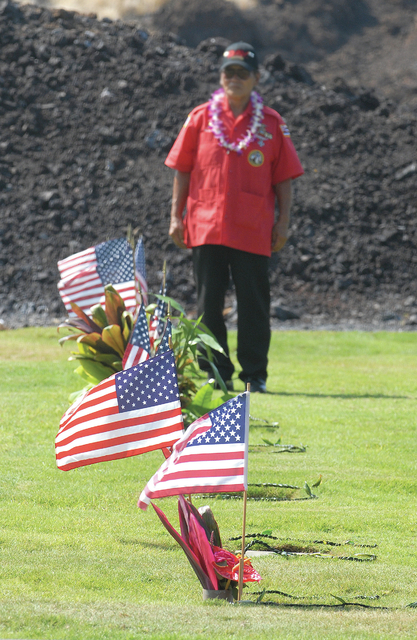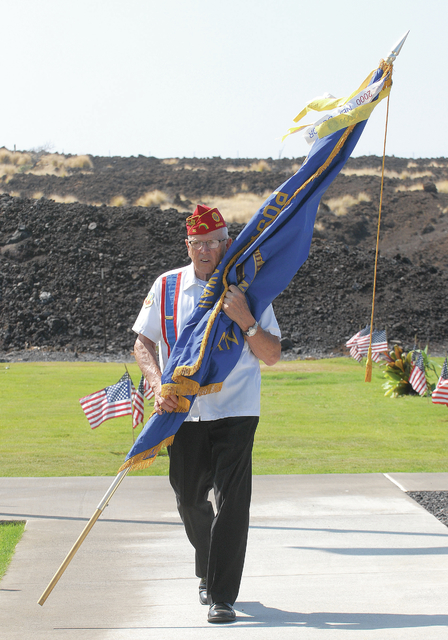KAILUA-KONA — The Pledge of Allegiance describes a nation — indivisible.
In a politically fractured America, Veterans Day represents unity through the commonalities of service and respect for that service. Such was the theme of Congresswoman Tulsi Gabbard’s keynote address at a ceremony hosted by the Disabled American Veterans Kona Chapter 7 to honor soldiers past and present.
It was held Friday at West Hawaii Veterans Cemetery.
“Elections come and go. Elected officials come and go,” said Gabbard, a major in the Army National Guard, who has served two tours in foreign wars. “As we see each other and we greet each other, all of the labels and boxes (in which) we tend to place ourselves in society fall away, and we are reminded of our unity in commitment and in service to others and to our country.”
Historically, the United States has proven itself far short of indivisible.
The Civil War divided regions, and in some cases, families. Civil rights divided the races. And in 2016, Donald Trump and Hillary Clinton divided fundamental political ideologies.
The lines of division haven’t always been precise or uniform — some whites marched with Dr. Martin Luther King Jr., for instance — but still, examples abound. Another divider, familiar to many in attendance at the ceremony, was the Vietnam War.
“Vietnam was a very controversial conflict,” said James Hussey, a 77-year old veteran and native of Hilo who spent more than 34 years serving in Army Special Forces across the globe, including four combat tours in Vietnam. “When you landed in San Francisco, they spat at you, yelled at you, called you a baby killer — especially us who wore the green beret. We took a lot of the heat.”
But the hundreds who gathered Friday on a West Hawaii hillside overlooking the Pacific Ocean were part of another set of historical examples that also abound — those of soldiers and the citizenry putting the pieces of America back together in the aftermath of polarizing or destructive events.
The ceremony was representative of the resiliency from which the description of the United States as “indivisible” is made possible.
At least, that’s how Hussey saw it in the context of the vitriol he experienced upon returning home from war.
“Now, the country is trying to make up for that,” Hussey said. “It’s kind of ironic because the generation that yelled and protested against us is the generation that is honoring us now, and their children. It’s very different.”
The Veterans Day ceremony intended and cultivated more than unity. It also celebrated honor.
Jim Bill spent much of his time in different branches of the military serving as a musician. He and his trumpet were assigned to the Navy Band in Washington D.C. before later transferring to the Army Band in Atlanta. He played at John F. Kennedy’s funeral and met Dr. King on more than one occasion.
Then, some time after retiring, he turned on the History Channel, which inspired in him a new way to honor fellow veterans musically.
“I saw a retired marine sergeant who was trumpet player going around playing Taps,” Bill said. “He encouraged any trumpet players to honor in all the places they could. I’ve been doing it now for 20 years.”
Bill traverses Hawaii Island, visiting 10-12 cemeteries every Veterans Day to offer a Taps rendition. Before some recent health problems, that number was in the 20s.
Finally, Friday was about family. Don Zero, a Vietnam combat era engineer, followed in his aunt’s footsteps. She served as a combat nurse in the Philippines. Zero’s son, a combat aviator, recently retired with the rank of colonel.
“They say freedom isn’t free — that we all gave some, and some gave all. Pick any little cliche you want,” Zero said. “The people who are anti-military just don’t understand, even our politicians.”
But Zero’s second family, his brothers and sisters in arms, will always understand.
“This event shows a unity for the people who have served. It shows the rest of the world that we did honor,” Zero said. “Let’s have respect. We allow you to have freedom of speech and freedom of assembly.
“For what we did, you can do.”







